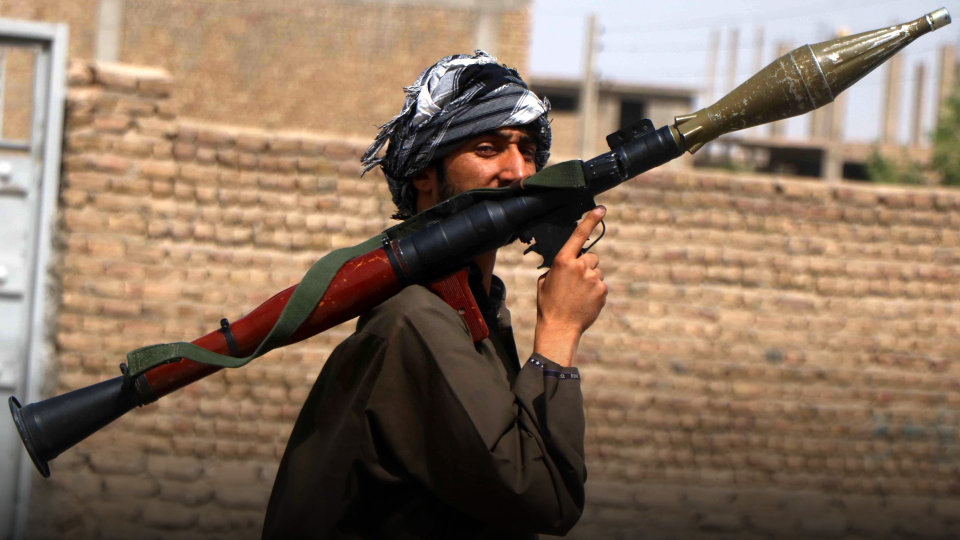The rate at which Afghanistan districts and cities are falling to the Taliban since the withdrawal of the US forces bring back memories of the mid-90s when the group was rising to power in a similar pattern, leading to the fall of the capital, Kabul in 1996.
As a young international affairs enthusiast then, and even though with limited understanding of the geopolitics and other dynamics of the situation, I interestedly followed the developments.
Afghanistan was invaded by the then Union of Soviet Socialist Republic (USSR) in 1979, following which local resistance groups known as the Mujahedeen sprang up to resist the invasion. Meanwhile, the global power struggle between the US-led capitalist West and the Soviet-led socialist East was still raging.
As either country was determined to undermine the influence of the other, the US was committed to forcing the Soviet Union out of Afghanistan. However, faced with the absence of any reliable local allies to manipulate, the US decided to pursue its goal by riding the wave of the then-popular Jihad sentiment against the Soviet invasion of the country.
The Central Intelligence Agency (CIA) managed the intelligence aspects of the US support to various Mujahedeen groups, while the State Department managed its diplomatic aspects. Also, thanks to the US-influenced global media narrative about the Mujahedeen, sympathy for them and their cause skyrocketed especially across the Muslim world and among Muslim communities the world over.
Passionate supplications for Allah to grant the Mujahedeen victory became part and parcel of Muslim supplications particularly in Friday Sermons, Taraweeh and Tahajjud in Ramadan. Tales of the extraordinary heroism of the Mujahedeen, many of which turned out to be fabricated, were systemically popularised, which inspired thousands of Muslim volunteers across the world to travel to Afghanistan and join the Jihad. Many of such volunteers especially those from the rich Gulf Arab countries and western countries abandoned lives of luxury to endure extreme hardship and stress in Afghanistan.
Anyway, the Mujahedeen managed to force out the Soviet Union from Afghanistan in 1989, and in 1992 managed to overthrow the government it had installed. However, the hitherto united Mujahedeen groups turned against one another in a bloody power struggle plunging the country into unprecedented chaos.
Meanwhile, neighbouring Pakistan, which must have lost a considerable amount of its influence over the feuding former Afghan Mujahedeen groups, was increasingly worried over the potentially destabilising implications of the situation on its security and stability. It, therefore, facilitated the formation of a group of Afghan refugees in Pakistan known as the Taliban to tackle all the feuding armed groups in Afghanistan.
Soon, the group began to attract many disgruntled nonpartisan Afghans and, of course, attracted those foreign volunteers most of whom were Arabs. And with the support of the Pakistani intelligence agency, the Taliban fighters began to sweep away those former Mujahedeen groups from Afghanistan districts at a dramatic rate, which culminated in the fall of the capital and the emergence of the Taliban government in 1996.
However, following the September 11, 2001 attacks in New York and Washington DC, which the United States accused Osama bin Laden of masterminding, the US demanded that the Taliban government surrender Bin Laden to it. The then Taliban leader, Mullah Muhammad Omar insisted that they would only surrender him if the US furnished them with irrefutable evidence of his involvement. The US invaded Afghanistan anyway, overthrew the Taliban government, and had since been there before its withdrawal recently.
Interestingly, though the US had installed and sustained successive Afghan administrations in the country, it failed to raise a substantive government strong enough to provide and maintain peace and stability, which explains the persistence of the Taliban’s activities all through in the countryside and remote areas. The largely corrupt Afghan political elites were holed up in their respective fortresses in the capital, Kabul, and other cities. They had apparently taken the protection they enjoyed from the US army, for granted. They never believed that the US would follow through with its withdrawal at least at this moment given the procrastination of successive US administrations on the matter.
Now, given the rate at which the Taliban is advancing across the country, overthrowing the already shrinking government in Kabul could be just a matter of time, barring any major development that may prevent it. However, that may not necessarily translate into the return of the Taliban government, after all. Because in the absence of any superpower in the country, there are now some regional powers pursuing their respective interests and agendas. Pakistan, Turkey and Iran are particularly active in this regard.
Pakistan, being ethno-culturally, religiously, socially, politically and geographically closest to Afghanistan, is, of course, interested in Afghanistan’s affairs. It is strategising to play appropriate roles in shaping Afghanistan’s political future.
Also, though Turkey doesn’t have shared borders with Afghanistan, it’s determined to impose its influence on the country’s political future in the context of its geopolitical expansionism. After all, its troops are already in the country supposedly as part of the NATO mission there.
Equally, neighbouring Iran has been increasingly involved in Afghanistan in pursuit of its agenda, which is much more complex than that of the others. Likewise, its approach is different from that of the others.
As it has always done to infiltrate wherever it targets, Iran is already busy creating armed militias among the Hazara Shiite minority in Afghanistan, and preparing them to grow into a formidable purportedly Afghan political block but loyal to Iran in reality through which it can influence things in the country.
Now, as things stand, the fall of Kabul may unleash uncontrollable chaos in the country, which underscores the imperative of arresting the situation before it’s too late.

 Join Daily Trust WhatsApp Community For Quick Access To News and Happenings Around You.
Join Daily Trust WhatsApp Community For Quick Access To News and Happenings Around You.


